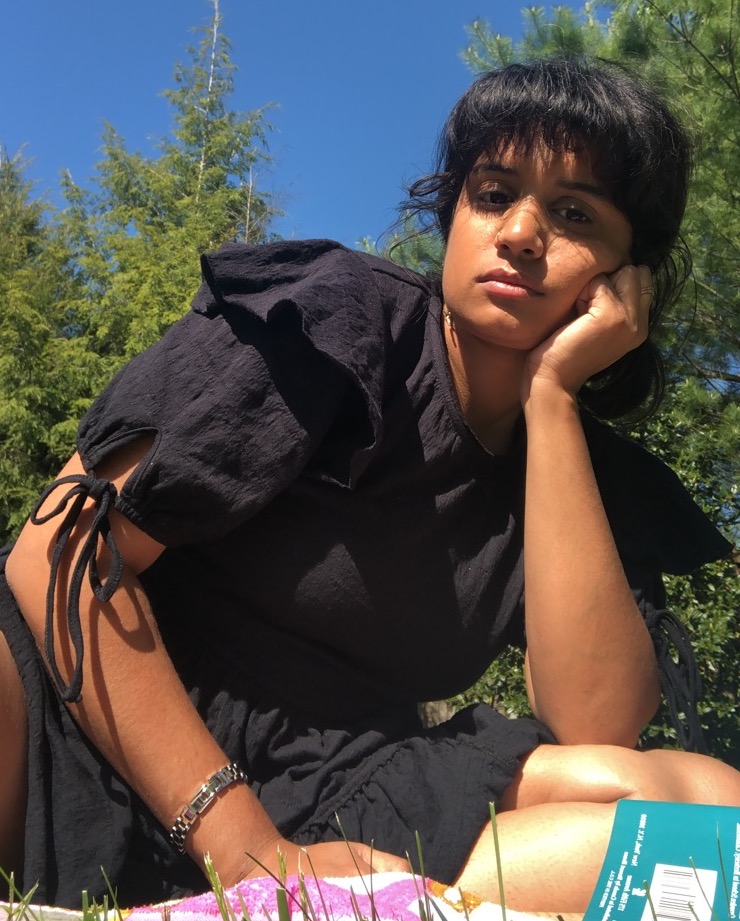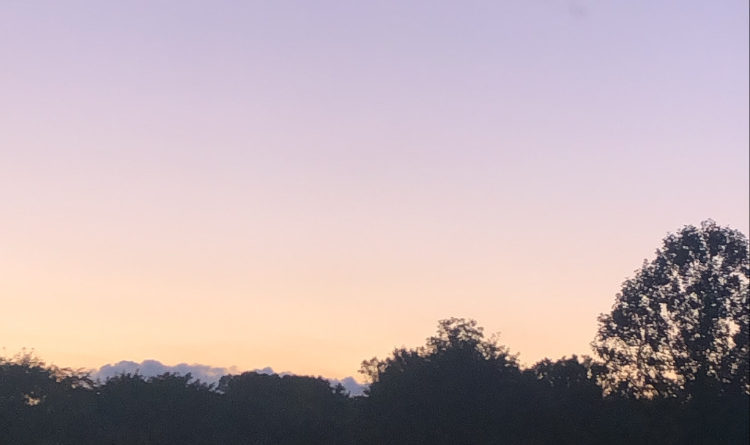Andal: Reclaiming My Name
This is a non-satirical piece.
December 7, 2020
By: Andal Paul
I am not sure what it means to be myself just yet.
My name is Andal, like candle. On paper, it makes a lot more sense to say Andal, like sandal, but I didn’t choose my nickname. It was given to me when I was 15, in my sophomore year gym class. During roll call, my gym teacher misheard my name. “Candle, who names their kid Candle?” I laughed, an indication of my etiquette, and corrected him. I think the nicknames that stick are always the ones that you don’t make yourself. It was interesting, I think, because I had just earned back my name.
When I was 12, and in seventh grade, I took my first intro to theater class. I was loud, boisterous, naturally funny. Our first assignment was to go up in front of the class and act out our name. I can remember it well because it’s a moment I’ll never forget. When it was my turn, I rose up and took my place on the raised piece of wood. There were cute, popular boys in our class, one of them I had a crush on. They looked up, confused, as if they were seeing me for the first time. “Who is this? India! India!” They cheered at their new nickname for me. I hadn’t gotten a chance to perform yet. The teacher reacted lazily, waving them off and allowing me to finish my performance. My hands shook, as they do now, writing this essay. I can never forget this moment. They took away my name, and I would not get it back for half a year.
I spent every morning dreading second period. I hadn’t grown into my teeth; my deodorant was lackluster; I needed a bra but didn’t know how to ask my parents. When I got to class, I was safe until it was my time to perform. I became strategic, forming groups with others and staying to the back. I still had some of what made me special, so I could say all the right things. I was an attractive partner because I never wanted solo time. I slouched in my seat. “India, why don’t you go up there.” I slouched further. “India! India! Why aren’t you responding.” I didn’t understand it. What was my connection to India? I had never been there. I couldn’t speak Hindi. I ate toast with jam and eggs for breakfast. My favorite artist was Paramore. What did I do? What did I do? I spent hundreds of hours attempting to answer this question. I lashed out at my parents. I purposely missed my alarms. I practiced speeches in the shower. This is what I would say if they said this. I would look John in the eye, and tell him he was being a fuck face.
I could never take the step to make my fantasies a reality, and for six long months, I was India. When the semester ended, we were allowed to pick new electives. I chose Guitar, and it didn’t matter if I got it, because you couldn’t take theatre twice if you were a seventh grader. Everyone had groaned and complained at the shifting of schedules; even 12 year olds wanted easy A’s. My glee was my favorite and best kept secret.
Guitar class was guitar class; the teacher was harsh, but I liked the anonymity I created. It wasn’t natural for me to sit in the back and keep quiet, but the memory of last semester stung, ached, and bubbled. I just wanted to exist. Slowly, I gained confidence with the friends I made in guitar class and outside. Simultaneously, I assimilated. I made the jokes before anyone else could. I took control of the conversation. I was openly abrasive. Even if the conversation wasn’t going in that direction, I’d be sure to slip in a joke or two about my excess facial hair, my teeth, my name. Anal, one girl called me. “If you take out the d in your name, you get anal.”
I have additional harsher, crueler stories, some on my middle school bus. These two boys would yell horrible things to another indian boy on the bus. It doesn’t feel real, looking back. Every day for two years I thought about how much I wanted to say or do something, and how much I hated myself for being unable to.
My middle school years were characterized by periods of intense stress followed by short spurts of relief. First impressions were critical missions. Getting people to laugh was the endgame. And I felt alone in my torment. I had no idea how to unpack the emotions I had locked inside me. It was about survival. Most of my understanding of my formative years are retrospective.
I understood the markers and culture of colloquial racism, and felt that it was normal. Or at least, my battle alone to fight. I was not beautiful nor innocent nor worth pitying. I simply adapted to the culture and played my role. I had friends deeply entrenched in this culture. I conditioned myself to believe it was a natural part of the middle school ecosystem. I was expected to assimilate to their standards of normalcy, and in doing so, I had to throw myself into the fire.
I was sensitive if I were to back down. At one point, in my arsenal of ‘joking’ curse words and slurs, we used the n word to refer to our friends. This is unforgivable, and I was a coward.
It wasn’t until I distanced myself from these friendships that the fog began to clear. It’s important for me to recognize and note here that colloquial racism leaves no one unscathed. It takes years of active unlearning, of understanding why. My trauma did not exonerate me.
I entered high school excited and scared but mostly ready for a fresh start. I let the vastness of my high school wash over me. In middle school, everyone is desperate for normalcy. We know this. Twelve year olds will take the first thing they hear and regurgitate it. I learned this in my next few years. I found solace in academic praise. I read a lot. My friends were more tangible, caring, and real.
And so when I was 15, and my gym teacher called me Candle, all I could feel was relief. Candle’s were universally neutral. I mistook the simplification of my name as the start of my place in a community. At times it felt even endearing, and maybe it was. And because I had not yet began my quest for identity, I felt important in my relevance and proximity to other people. I became known as Candle. Most importantly, because of the strife in my younger years, I felt I had earned my nickname.
My junior and senior years of high school were positive, tumultuous but normal experiences. My experiences were not caused by my race, but I am far enough removed to know it did play a role. I was never asked to a school dance. My first kiss was unbearable, facilitated mainly by my desire to get it over with. My friends were real, but turned a blind eye to the racist undertones of my arguments with their mutual friends. If someone was even the slightest bit unfair to me, I was jaded. But things were mostly good. I took theatre electives all through high school, and loved it. The demographic had thinned out to only staunch theatre kids, with too much kinetic energy to do anything except sing (and ask if they made the cast list), and stoners, with too little energy to do anything but scroll through tumblr on the desktops in the corner of the room. We had an improv unit, the first time I ever felt like I truly wanted to lead anything in that class. I still had the fear, and I learned to tune or block it out. But it’s always there, even today. My hands will always shake.
All of this was fine and great and I am glad I came out of high school relatively unharmed. I had my friends, and I had people who weren’t my friends. I wasn’t popular, and thank god for that, but I had a solid group of friends I could spend my days with. But I was still Candle when I entered college. I went in as a shell, molded and built to withstand a multitude of temperatures and climates. I was not Andal, but a girl who found enjoyment at being good at things and getting laughs and validation from her friends and family. My political opinions were my parents. My choice of major was my dad’s.
I was, and still am deeply, deeply insecure. I cannot look in a mirror for too long. I would not recognize my anxieties and disordered eating patterns until late in my college years. My solace in college was my improvised performance group. It was a community of artists, mentoring my creative soul. We performed every Friday outside, no matter the weather. And still, the aggressive stage fright was there. I felt it in my stomach and my hands, before every Friday show. I spent many years as a selfish performer, searching for absolvement in the laughs I could generate.
This is not an essay with a resolution. I am a product of the scars and beauty marks of the past. I must always carry the weight of the things I’ve said to others, and the things that others have said to me. I am talking to her now, the 12 year-old girl in her seventh grade theatre class. I am asking her if there is anything else she would like to say. I am telling her that I forgive her, and it is ok if others do not. I need her to know that I am proud of her, for surviving and doing it alone. She is not alone anymore, because she has the parts of me that were chosen to be creative director for her improv group, the parts of me that stopped weighing herself everyday, the parts of me that no longer search for a higher forgiveness in the universe. If she’s ready, I’d like her to call herself Andal.
My name is Andal. It has a south Indian origin, though most of my family is from New Delhi, and it means ‘divine queen of eternal love.’ I used to think that was lofty, something I’d always have to live up to. But I am Andal, and I know this: I am a star.





